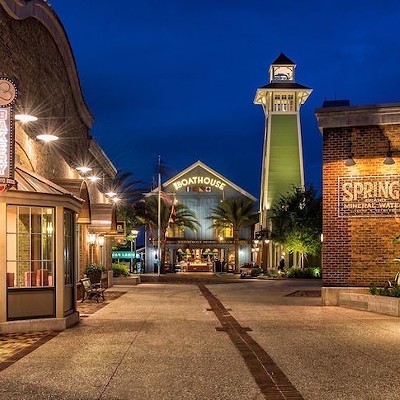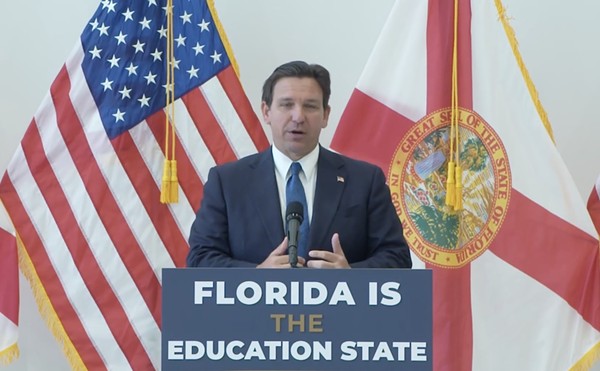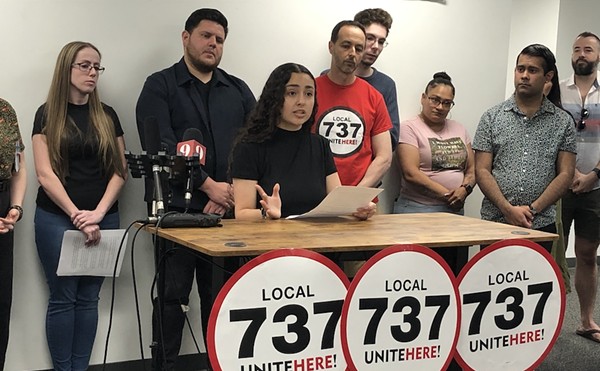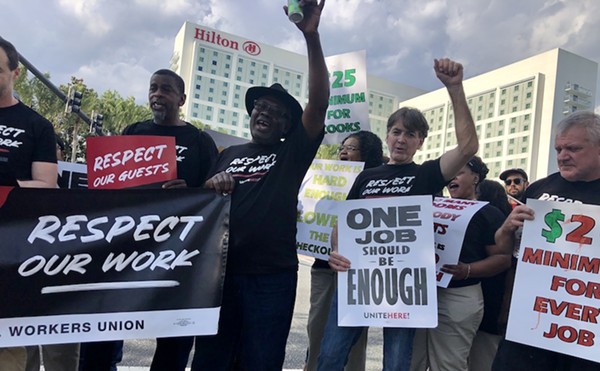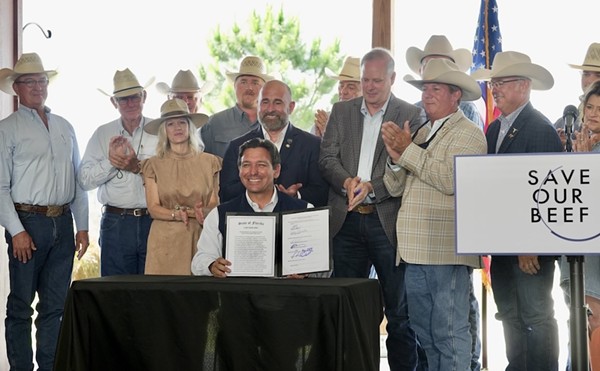The hunger
How many meals could one purchase for $40,000? How many people without food could be fed with such a sum? This isn't some arbitrary number, picked out of the sky for an academic exercise; rather, it is the amount the city of Orlando has spent in court defending its restriction on homeless feedings at Lake Eola Park (Happytown, July 14). This is the financial cost of the city's foolish and misguided effort to turn its downtown into a mirror of its nearby theme parks, but there are other costs – to city diversity, to human dignity and to the community's fabric – resulting from its attempts at social sanitation that are arguably much higher.
The complaints from park-area vendors that played a role in the initiation of the 2006 law, which requires that anyone feeding 25 or more homeless individuals at a city park within two miles of City Hall obtain a permit, are a canard. If homeless individuals cause problems outside of the park, then that is a police matter, not one to address through public policy. Clearly, the real concern is the affect their presence may have on adjacent commercial activity. The notion that business interests associated with the park should take precedence over its civic functions has implications beyond this case – it goes to the heart of the debate over whom our society should exist to serve. By narrowly defining the rights of citizens to use Lake Eola Park, the city is effectively privatizing that most central of urban necessities – the public space.
Particularly noteworthy is city attorney Mayanne Downs' reaction to a federal appeals court ruling that upholds the law. She states that the city is protecting "an important part of our city's heritage and history" from "an unfair burden." Another jubilant city representative, commissioner Patty Sheehan, frets that families were afraid to bring children to the park. Allowing children to see the level of compassion and humanity present in their community would undoubtedly be unsettling for them, just as allowing a public park to perform its natural and intended function – that of fulfilling community needs – would present an "unfair burden" on that very space, or so goes the reasoning. Never mind that the sight of group feedings might cause people to recognize the depth of need in their community, and perhaps even inspire something resembling kindness – it would also shatter their ability to deny the existence of the problem, and therefore it must be stopped.
Perhaps Orlando Mayor Buddy Dyer and the City Council, in their perpetual quest for real, world-class urbanism, should take a moment to consider what a city really is. A city is not a set-piece; rather, it is a stage upon which a diverse set of actors explore and shape the world. These people – a city's citizens and true owners – socialize one another in myriad beneficial ways, despite the best efforts of those who would enforce a contrived, income-based sterility.
The real unfair burden in this situation is the one placed on those unable to take part in a culture that values commercial consumption and little else. The structural issues that produce the problem of homelessness are society-wide; our cities have the misfortune of being simultaneously the least capable and the most likely to deal with the problem. Legislating against it, however, is a nonsolution. Placing our city's neighborhoods and citizens onto a hierarchy of importance corresponding to their financial wherewithal will only further the cause of economic inequality and immure us to more of the backward thinking that prevents true urban dynamism from taking hold in Orlando.
Ben Hagen
Orlando
;; [email protected]

